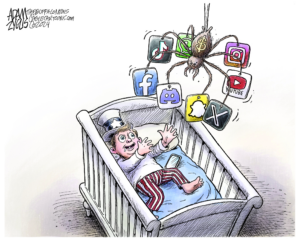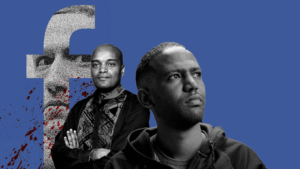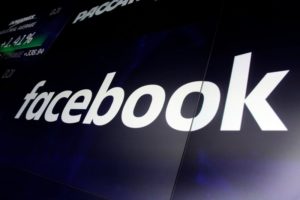Beware of the World Mark Zuckerberg and Facebook Are Making, The Observer Warns
“Facebook is the grim sign of something going seriously wrong in our economic model,” according to editors at the British newspaper.
Facebook founder Mark Zuckerberg in 2010. (The Crunchies! / CC BY-ND 2.0)
“Facebook is the grim sign of something going seriously wrong in our economic model,” write the editors of The Observer in a review of a 5,700-word “manifesto” that Facebook founder Mark Zuckerberg published last week.
“The balance of economic power — so critical in holding companies accountable — is tipping in favour of a small group of companies in a corner of California that governments are proving unwilling or unable to properly regulate.”
The Observer continues:
‘Are we building the world we want?” Mark Zuckerberg, the billionaire CEO of Facebook, asked last week in a 5,700-word post that was quickly dubbed a “manifesto”. He used it to launch a strident defence of globalisation, striking a discordant note with the populism of contemporary political debate, and to set out his vision for the role he believes Facebook should play in creating a better world.
While Zuckerberg appears to acknowledge some of the criticism that has been levelled at an increasingly powerful Facebook in recent years, it would be wrong to be lulled into a false sense of security by his reassuringly benign tones. In his post, he signals a shift in Facebook’s mission, historically focused on giving people the power to share and connect. On Friday, Zuckerberg wrote “the most important thing we at Facebook can do is develop the social infrastructure to give people the power to build a global community that works for all of us”.
But there is something chilling in Zuckerberg’s failure to recognise that Facebook is already a for-profit form of social infrastructure, with immense and unprecedented power over our lives. And in making its profit, Facebook creates social value, yes, but also social harm.
Facebook’s stunning reach extends beyond that which any other company has ever had. A quarter of the world’s population – 1.86 billion people – have Facebook accounts. Facebook shapes the way they consume, process and interact with information, and with each other. It got there by pursuing aggressive growth strategies. For areas of the world where consumers cannot readily afford the internet access required to consume Facebook, it has developed a superficially philanthropic initiative, internet.org, to give consumers in the global south free internet access. But look deeper, and it is clearly about building Facebook’s user base and profits, offering strictly limited access: just to Facebook and a few of its partner sites. Banned by Indian regulators after a public outcry mobilised by local internet entrepreneurs, in several other countries, it has faced little pushback.
Facebook’s monopoly-style power extends far beyond people’s internet access. Together with Google, it has cannibalised the online advertising revenue so vital to enabling the investigative journalism that has never been more important in today’s world. Zuckerberg barely acknowledges Facebook’s role in the accelerating demise of the traditional media, and offers nothing beyond inane platitudes.
Read more here.
—Posted by Alexander Reed Kelly
Independent journalism is under threat and overshadowed by heavily funded mainstream media.
You can help level the playing field. Become a member.
Your tax-deductible contribution keeps us digging beneath the headlines to give you thought-provoking, investigative reporting and analysis that unearths what's really happening- without compromise.
Give today to support our courageous, independent journalists.






You need to be a supporter to comment.
There are currently no responses to this article.
Be the first to respond.